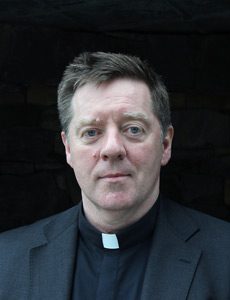
By Cian Molloy - 27 March, 2017
In the very near future your parish may not have a resident priest – that is the stark message given by Bishop Francis Duffy to the faithful in the Ardagh and Clonmacnois diocese in a pastoral letter read out at all Masses this Sunday.

Bishop Francis Duffy
At present, Ardagh and Clonmacnois has 53 diocesan priests serving 41 parishes, but many of these clergymen are reaching the end of their ministry. Bishop Duffy predicts that by 2030 the diocese will have only 25 diocesan priests, less than half the number it has at present.
After highlighting the many positive initiatives in his diocese involving greater involvement of lay people in the life of the Church, Bishop Francis Duffy told Mass-goers: “In the midst of all these developments there has been a steady decline in the number of our priests. Many of you will fondly remember when there were two or three priests working in your parish and where now there is only one. Three of our parishes do not have a resident priest.
“This trend of a declining number of clergy is set to continue. At the moment we have 52 very dedicated diocesan priests in our parishes but sadly no seminarians preparing for ordination. In addition we have four priests from abroad and from missionary congregations who are working in the diocese. This means we have a declining, and an ageing, group of clergy.
“From both a pastoral and a duty of care perspective, it is important that responsibilities our clergy now carry are shared with parishioners even more so than at present.
“By 2030, over the next 13 years, 28 of our 53 diocesan priests will reach the retirement age of 75 years. By the time children baptised this year reach Confirmation our diocese will be a very different place.”
In the pastoral letter, entitled Sustaining our Faith Community, the Bishop wrote: “In the very near future your parish may not have a resident priest, or if you have, then your priest may be called on to provide pastoral care in a neighbouring parish that is without a resident priest. This ongoing development will impact every parish in the diocese and will bring about considerable change in how the parishes are organised and also in the way the Good News of Jesus Christ is passed on to succeeding generations. Critically, there will also be an impact on the workload of priests and their welfare is our concern in this changing context.”
Bishop Duffy wants his flock to start actively thinking about how parishes will cope with a reduced number of priests, in particular how parishes provide faith formation to free up priests for sacramental duties.
“The Catechism of the Catholic Church states ‘the Sunday celebration of the Lord’s Day and his Eucharist is at the heart of the Church’s life.’ The Sunday Eucharist and the celebration of the sacraments and the pastoral care of people are of central importance for every parish. As a consequence, consideration needs to be given to developing and enabling parish faith development and pastoral care to continue and to flourish with fewer priests and with greater involvement of parishioners.
“All our parishes are divided into Pastoral Areas. One Pastoral Area in the southern part of the diocese has already rationalised the number of Masses in the context of a declining number of clergy. This is not about closing churches but about reimagining how we worship and pass on our Christian faith.
“At this time you and our priests have a unique and precious opportunity to serve the Lord by encouraging and engaging with each other to prepare for and take on responsibility for the formation, promotion and practice of the faith at local level in changing circumstances. We continue to pray for and promote vocations to priesthood and religious life. A time of decline in one area can be an opportunity for growth in other areas.”